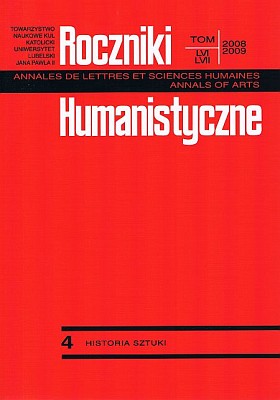Aesthetic „Play” as the Formula of Salvation. Reception of the Kantian Term „Play” in Friedrich Schiller’s On the Eesthetic Education of Man in a Series of Letters
Abstract
Free Aesthetic Play is one of the crucial terms in Friedrich Schiller's On the Aesthetic Education of Man in a series of Letters, the concept of which he has taken from the Critique of the Power of Judgment by Immanuel Kant. The fundamental difference between Kant's and Schiller's conception of Play does not concern its statement of meaning but rather its purpose and dignity. Free play of sensuality and spirit or intellect and imagination, which is entail by the experience of Beauty, Kant recognizes only as the symbol of morality, seeing that the state of the harmony between opposite sides of human reason, as its effect, is only apparent and therefore has no impact on reality. Schiller, as a poet, had a greater inclination to appearance, art and beauty and this is one of the grounds why the state of harmonious play of cognitive powers of reason is for him the most significant and deeply (if not only) human moment of one's experience.
Kant wanted the man to fulfill his specifically human vocation by dint of conduct in accordance with the moral law, which will lead him to moral autonomy. Whereas Schiller believes that the only possibility of salvation from disability, which is for him tantamount to being the subject to any compulsion, gives Art, which prerogatives he conveys to Kantian philosophy of morality. In his vision Art has enormous power: under its impact, in aesthetic play, one has the only possibility to approach freedom for a precious while, the only opportunity to become a real man.
Copyright (c) 2009 Roczniki Humanistyczne

This work is licensed under a Creative Commons Attribution-NonCommercial-NoDerivatives 4.0 International License.





